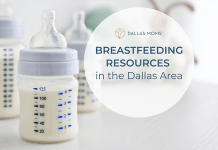Infertility affects 1 in 8 couples. You likely know someone who is experiencing or has experienced infertility, even if you have never talked about it. We have to be willing to let go of the taboo and stigma around this topic. Don’t make assumptions about the process if you haven’t been through it. National Infertility Awareness Week is April 18-24 so let’s talk fertility!
The questions started soon after my husband and I got married: When are you two going to have a baby? People who ask usually mean well, but for those of us who experience infertility, these questions can sting. While I do not recommend badgering your friends about when or whether they intend to have children, I absolutely think we need to be more open to discussing fertility.
 CCRM Fertility, a global pioneer in fertility science, research, and treatment, was founded in 1987 and has achieved international recognition in the field of reproductive medicine. Dr. Dorette Noorhasan, a board-certified reproductive endocrinologist and co-founder of CCRM Fertility Dallas–Fort Worth, works with patients struggling with infertility in the DFW area, truly understands what it’s like to walk in her patient’s shoes as she’s and been through five rounds of in vitro fertilization (IVF). She believes we need to open up the conversation and talk about infertility more.
CCRM Fertility, a global pioneer in fertility science, research, and treatment, was founded in 1987 and has achieved international recognition in the field of reproductive medicine. Dr. Dorette Noorhasan, a board-certified reproductive endocrinologist and co-founder of CCRM Fertility Dallas–Fort Worth, works with patients struggling with infertility in the DFW area, truly understands what it’s like to walk in her patient’s shoes as she’s and been through five rounds of in vitro fertilization (IVF). She believes we need to open up the conversation and talk about infertility more.
According to a recent local survey conducted by CCRM Fertility, almost a quarter (23.2%) of Dallas residents are not comfortable talking about their fertility. What’s even more alarming, the vast majority (62.2%) of respondents said they feel least comfortable talking about fertility with their friends and family.
“Some patients choose to discuss their fertility with family and friends but many others chose not to,” Dr. Noorhasan said. “I think it boils down to that patient’s relationship with family and friends, as well as that patient’s perceived response from family and friends. It is important that we lean on our loved ones for support,to bounce ideas off of and share our day-to-day lives. Friends and family can really be a support network in our good times, but also in our times of need.
Additionally, the survey revealed 45.6% of Dallas residents said they are either “not well informed” or “clueless” when it comes to their fertility health. Not only does Dr. Noorhasan believe we need to open up the conversation about fertility to a wider audience, but that we need to be better informed about our fertility health overall.
“Throughout adolescence and adulthood, we’re continuously taught to not get pregnant, and we learn about various forms of contraception to ensure we don’t,” Dr. Noorhasan said. “Then, when people are ready to have a baby, they’re not equipped with basic information about ovulation, when they’re most fertile, or even the biological clock associated with female fertility.”
Walking Through Infertility
My fertility struggles didn’t come as a surprise. I knew there was a chance we would have to see a fertility specialist because my cycle had never been regular and there was a medical history of fertility issues. What I learned along the way was just how common infertility is.
“It is difficult to have to deal with infertility by itself,” Dr. Noorhasan said. “But then having to listen to others give their input, particularly if they have never struggled with infertility themselves, makes dealing with infertility immensely more difficult and can prevent patients from sharing their journey with their loved ones.”
Educate yourself
Whether you think you want to try to have a baby in the next five years, you’re ready to start trying now or you’re worried about the outcome you might receive after getting your first fertility assessment, know that knowledge is power when it comes to your fertility health.
“It is important to be proactive and become educated on your fertility health, so you are not missing your window to conceive, which can be different for everyone,” Dr. Noorhasan said.
Know that you are not alone
Dr. Noorhasan speaks from experience. “As a fertility specialist and a woman who has also undergone 5 rounds of IVF myself, I have dedicated my time to sharing my story to help others. If 1 in 8 struggle with infertility, then it is very common and certainly nothing to be ashamed of.”
As someone who has gotten pregnant via IUI and IVF and spent years undergoing fertility treatment, I completely agree. If you and your partner are starting your own fertility journey and aren’t already well versed in reproductive science, prepare to get a crash course.
It’s ok to attend counseling
“For any couple planning to go through fertility treatment of any kind, I highly recommend being proactive with yours and your partner’s emotional wellbeing by starting counseling with a trusted therapist early on, and throughout the entirety of the process,” Sherry Smith, a CCRM Fertility Dallas Fort-Worth patient, said.
How to support your community
If you have a loved one experiencing infertility, do not make assumptions about what that means or how they are coping. CCRM Dallas Fort Worth patient Diedre Larry said, “When you and your partner are experiencing the mental and financial stresses that often come with undergoing fertility treatment, it can be really easy at the same time to point your finger and place blame on each other out of frustration. But at the end of the day, the two of us together were able to create a beautiful baby through science.”
I give people a lot of grace when they have questions about my own experience with infertility because I want them to feel comfortable asking questions about infertility that might feel awkward. One of the big ones is: So which one of you had the fertility problem? Often people sort of tiptoe around it. In my case, it was “unexplained” infertility.
“When patients undergo a fertility evaluation, we do comprehensive testing to help determine the source of infertility,” Dr. Noorahan said. “Approximately 15% of the time, the tests come back normal and the cause of infertility is unknown. While a diagnosis of unexplained infertility can be difficult to hear that does not mean you won’t have success conceiving. Many couples diagnosed with unexplained infertility will achieve pregnancy through fertility treatments, such as medications combined with IUI (intrauterine insemination) or IVF.”













